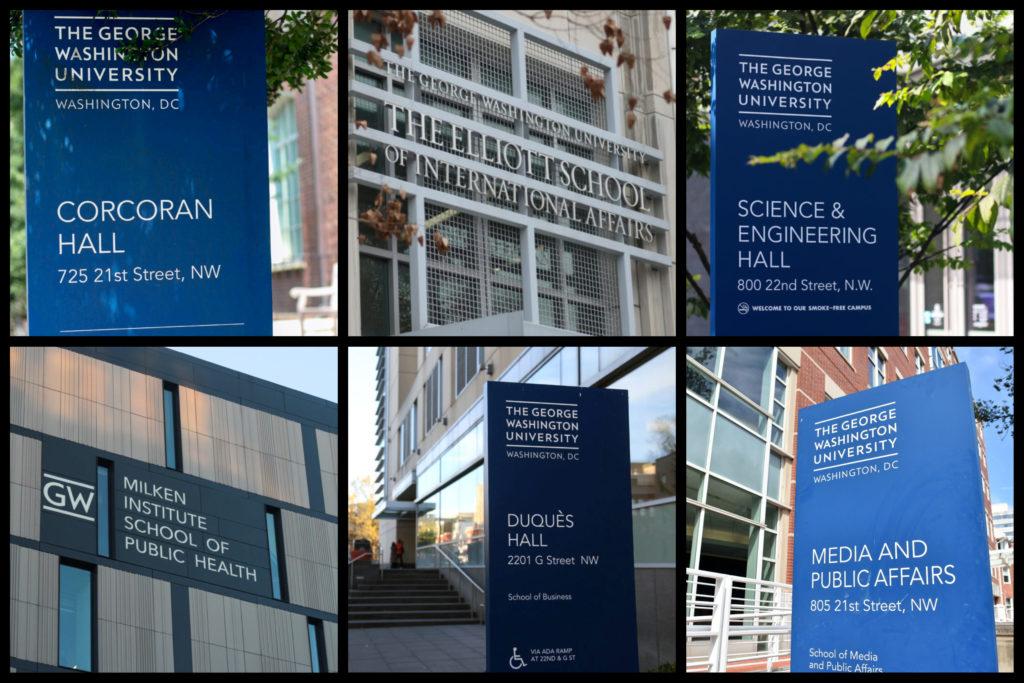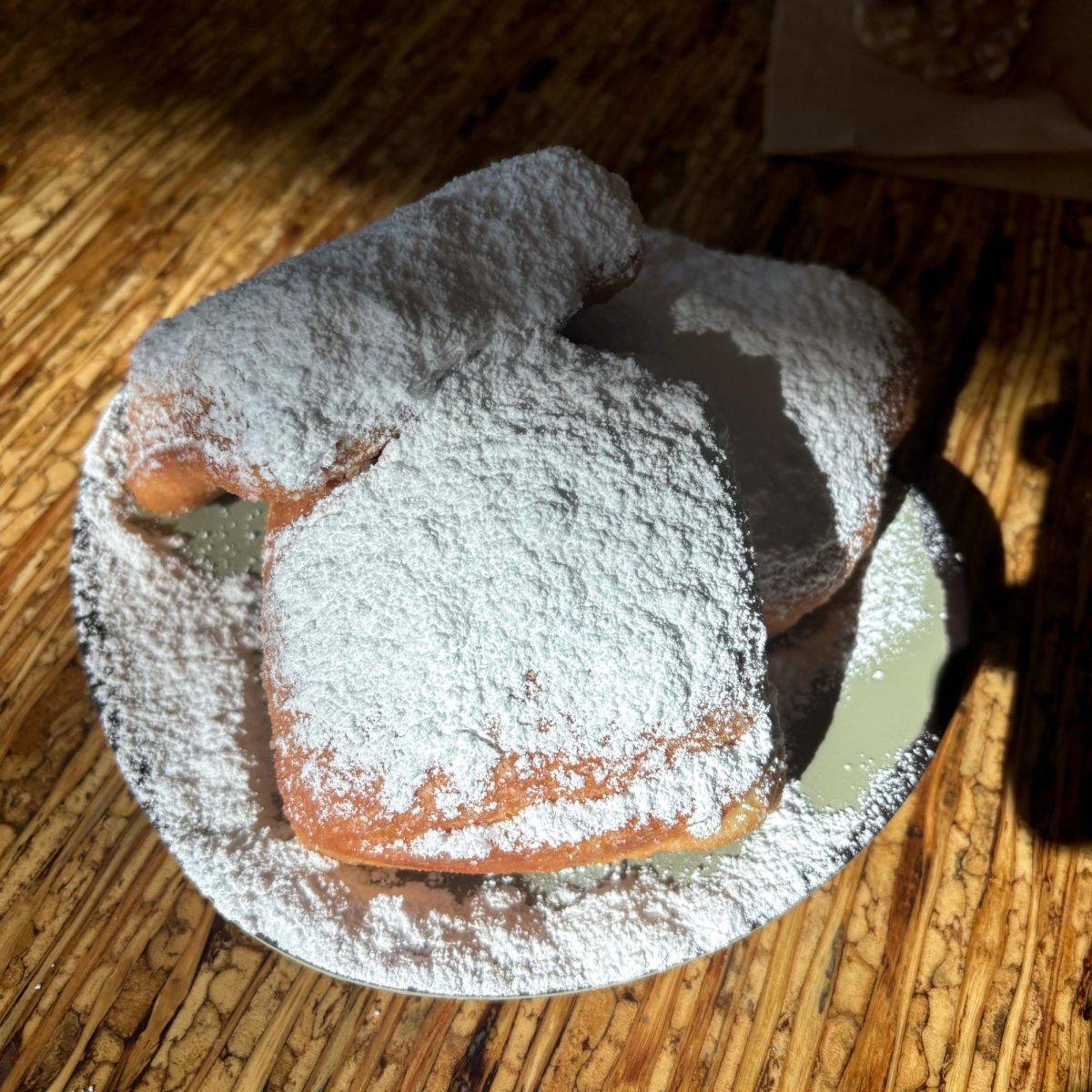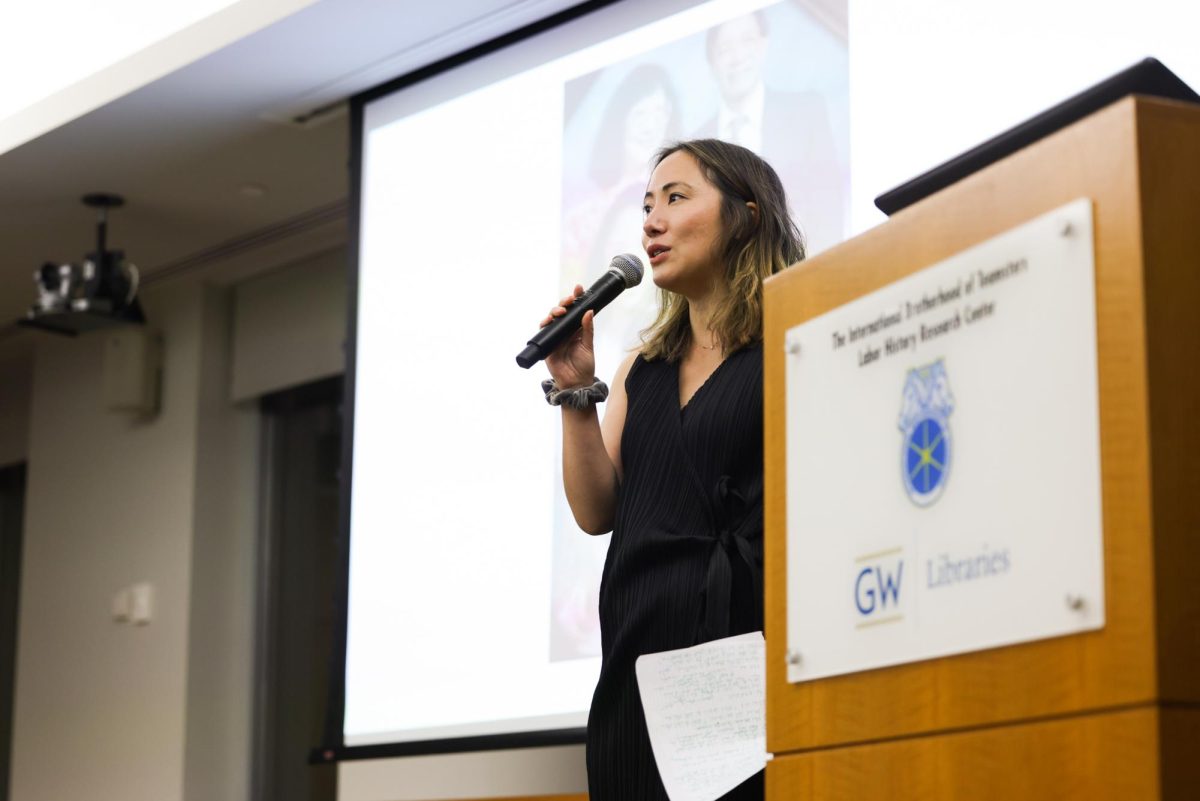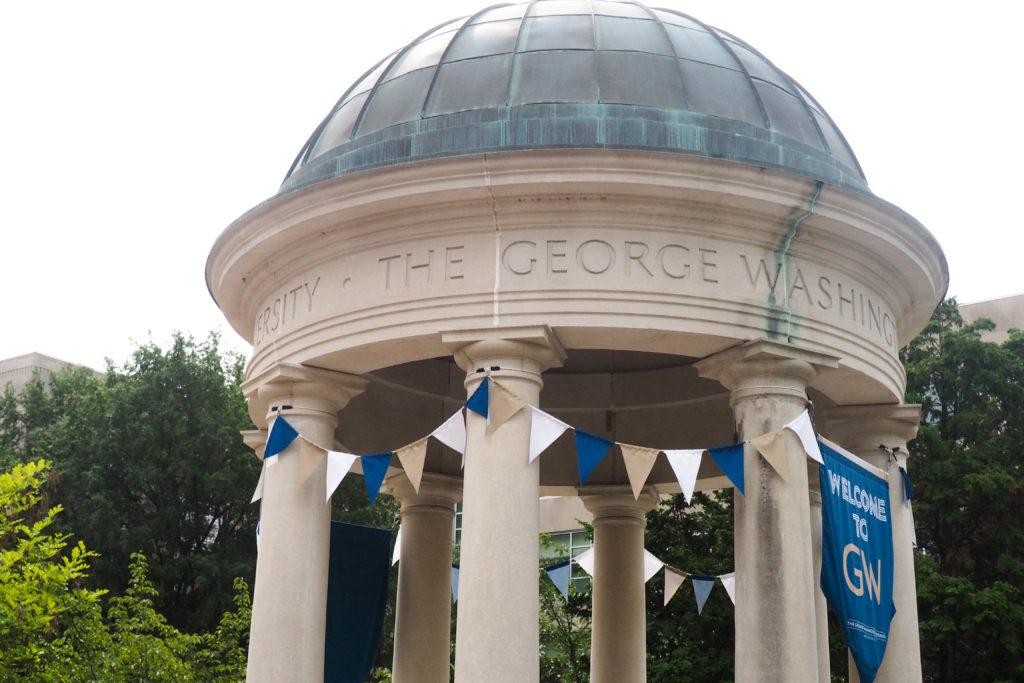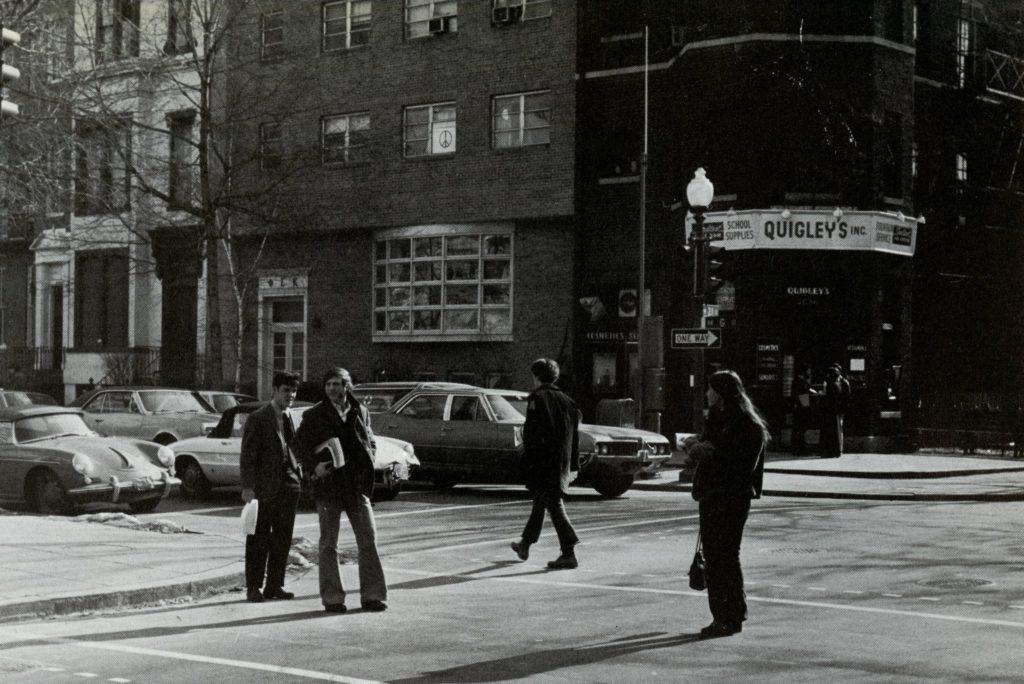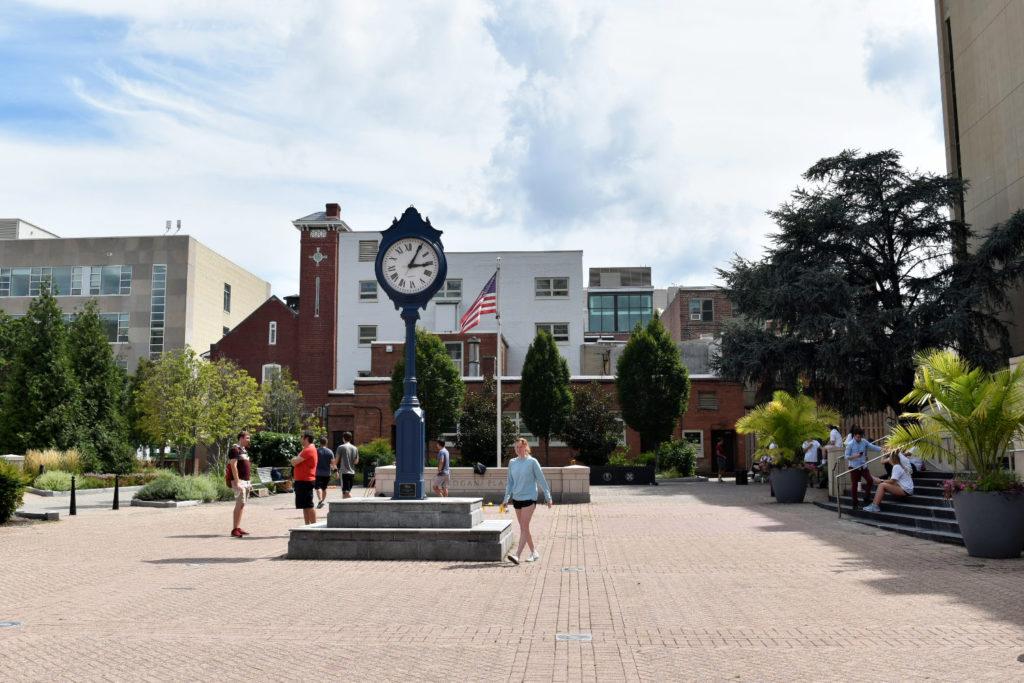After spending more time on campus than any other class and finishing almost all of their academic requirements, this year’s senior class is here to offer valuable tips that can help you navigate your new school.
We asked seniors from different schools and colleges to reflect on their experience in their schools and give advice to incoming freshmen. Whether you need suggestions for standout classes, tips on resources unique to each school or general advice on navigating your time at GW, these seniors have you covered.
Corcoran School of the Arts and Design
Phebe Grosser, a photojournalism major and Hatchet photographer, said Corcoran’s community is “supportive and dedicated.”
“One thing we see in our community is the way that both students and faculty come together to support each other because of their mutual love of the arts,” she said.
Grosser said Corcoran’s professors, many of whom still actively work in their professions, can offer students a direct connection to the professional arts.
She said students should take a class with studio art professor Allyson Vieira because of her tough nature that encourages artistic growth.
“Her classes were some of the hardest I’ve ever taken but really helped me learn who I wanted to be as an artist and a student,” she said.
Elliott School of International Affairs
Leila Wynnyckj, who majors in international affairs with a concentration in international development, said Elliott is a tight-knit community of students who are passionate about their majors.
“Whether that be with the United Nations, as a diplomat, or nonprofit work, all Elliott students have a passion for making an impact greater than themselves,” she said.
She said Elliott’s student culture can be competitive, but that shouldn’t distract new students from pursuing their own passions and goals.
“Ultimately, this is your college experience, so do not let the pressure of others change your trajectory,” she said.
School of Business
Business major Amanda Ierchi said students in the business school are “extremely driven and always getting involved” in the business community.
Ierchi recommends students take advantage of the Fowler Center located inside the business school. She said the center provides students answers to industry specific questions, career advice and assistance with interview preparation.
“If you hear about a cool student org or an interesting research opportunity but you don’t know how to get involved, reach out and ask questions,” she said. “It may seem scary at first, but people want to talk to you and want to see you succeed.”
Milken Institute School of Public Health
Unlike some schools on campus, Melissa Altschiller said that Milken is a low-competition and collaborative school.
Altschiller said she would advise freshmen in Milken to join public health focused student organizations on campus like GlobeMed, a globally-focused public health org which she joined freshman year.
“Not only am I able to apply public health concepts from class to the growth and bettering of GlobeMed, but I get to see friendly GlobeMedders in class every day,” she said.
Schiller said she recommends taking Human Sexuality with exercise and nutrition sciences professor Sarah Axelson, which she described as the “grown-up version of sex ed.”
“While it is an elective, I believe it should become a requirement for all Milken students, if not the entire undergrad study body,” Altschiller said.
School of Media and Public Affairs
Political communication major Catherine Morris said that SMPA’s small community allows students to easily connect with and support each other.
Faculty’s connections to D.C. allow the school to host an array of discussion panels and appoint prominent journalists and communication professionals in fellowship roles. Morris said the events, like a discussion with Chuck Todd a few years ago, give students an immersive experience that sets them up for a professional career.
“SMPA events allowed me to get involved with the school before I was taking a lot of SMPA classes my freshman year,” she said.
Columbian College of Arts and Sciences
Anthropology and environmental studies major Grace Ainslie said that Columbian’s greatest strength is its diversity of classes, students and faculty.
Ainslie said she would take advantage of Columbian’s diversity and take classes outside of one’s specific major. She said some of her favorites have been Cultural Geography with geography professor Declan Cullen and Language in Culture and Society with anthropology professor Alexander Dent, both of which she said changed the way she thought about her surroundings and interactions she has with people on a day to day basis.
“Columbian is super diverse, everyone has different interests so it allows you to interact with people that have different passions,” she said. “Other students can be really knowledgeable about areas that you know nothing about.”
School of Engineering and Applied Sciences
Nathan Pen, an electrical engineering major in SEAS said that the college’s small community, with around 1000 students total, allows students to better connect with professors and each other.
“You get to know the people in your classes and major pretty well so it makes classes and everything else more doable,” he said.
He also said freshmen should be diligent in getting to know professors so that a professor can “put a face to a name,” when grading and to potentially have the opportunity to get involved in research.
Pen said he enjoyed classes like Digital Logistic Design and Circuit Theory because solving problems for these electrical engineering classes was like solving a puzzle.
“Each problem you do for classwork or homework is like solving a puzzle and it’s really satisfying when you solve them correctly,” Pen said


